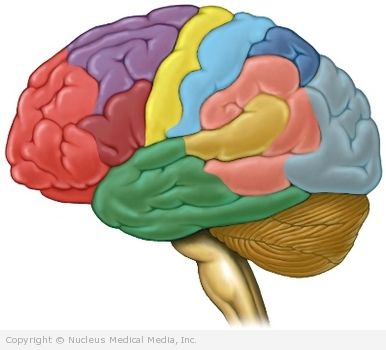Schizophrenia – Definition
Schizophrenia is a chronic, severe, disabling brain disorder that interferes with the way a person interprets reality. People with schizophrenia may:
- Hear voices or see things that others do not
- Become paranoid that people are plotting against them
- Experience cognitive deficits
- Withdraw socially
These and other symptoms make it difficult for people with schizophrenia to have positive relationships with others.

Schizophrenia – Causes
The cause of schizophrenia is unknown. Problems with brain structure and chemistry may play a role. There also appears to be a genetic component. People with a parent or sibling with schizophrenia have a 10%-15% chance of developing the disease. This compares to less than 1% chance if no relatives have schizophrenia.
Schizophrenia – Risk Factors
A risk factor is something that increases your chance of getting a disease or condition. Schizophrenia does not develop because of one risk factor. It develops because of how your genes and environment interact. You may have a gene that increases your chance of schizophrenia, but you may or may not develop the disease based on your environment. (Environment means any outside factor like stress or infection.) Factors that increase your risk of schizophrenia include:
- Having a parent or sibling with schizophrenia
- Marijuana use or other drug use
- Father being of older age
- In the northern hemisphere: being born during winter months; being born in the city
- Other factors, like problems during pregnancy or birth (eg, infection)
Schizophrenia – Symptoms
Men typically develop symptoms in their late teens or early twenties. Schizophrenia in women tends to occur in their twenties or thirties. In rare cases, it is seen in childhood.
Symptoms often appear slowly and become more disturbing and bizarre over time. Or, they may occur in a matter of weeks or months.
Symptoms include:
- Hallucinations — seeing or hearing things/voices that are not there
- Delusions — strong but false personal beliefs that are not based in reality
- Disorganized thinking
- Disorganized speech — lack of ability to speak in a way that makes sense
- Catatonic behavior — slow movement, repeating rhythmic gestures, pacing, walking in circles, refusal to do things, repetitive speech
- Emotional flatness — flat speech, lack of facial expression, and general disinterest and withdrawal
- Paranoia
- Inappropriate laughter
- Poor hygiene and self-care
Schizophrenia – Diagnosis
To diagnose schizophrenia, a person must have symptoms most of the time during a period of one month. These symptoms must cause a decreased level of functioning. Some of the symptoms must continue for at least six months.
The doctor will rule out other causes, such as drug use, physical illness, or a different mental health condition.
Schizophrenia – Treatment
Schizophrenia is not curable, but it is highly treatable. Hospitalization may be required during acute episodes. Symptoms are usually controlled with antipsychotic medicine.
Antipsychotic Medications
Antipsychotic medicines work by blocking certain chemicals in the brain. This helps control the abnormal thinking that occurs in people with schizophrenia. Determining a medicine plan can be a complicated process. Often medicines or dosages need to be changed until the right balance is found. This can take months or even years. Examples of medicines include:
- Haloperidol (Haldol)
- Thioridazine (Mellaril)
- Fluphenazine (Prolixin)
- Chlorpromazine (Thorazine)
Relapse is common, even for patients taking medicine. Treatment compliance can be a challenge since people often stop taking their medicine when they are feeling better. If you do not take your medicines as prescribed, your doctor may give you a long-acting injection instead of daily pills. The side effects of traditional antipsychotics also can cause people to discontinue treatment. The most common are physical side effects, such as:
- Slow and stiff movements
- Restlessness
- Facial tics
- Protruding tongue
Medicines called atypical antipsychotics have fewer side effects and are better tolerated over long periods of time. But they may cause weight gain, high blood sugar levels, and high cholesterol levels. Examples of these medicines include:
- Aripiprazole (Abilify)
- Clozapine (Clozaril)
- Risperidone (Risperdal)
- Olanzapine (Zyprexa)
- Paliperidone (Invega)
- Quetiapine (Seroquel)
- Ziprasidone (Geodon)
- Iloperidone (Fanapt)
Medications for Coexisting Conditions
Conditions often associated with schizophrenia include depression and anxiety. They may be treated with:
- Antidepressants
- Anti-anxiety medicine
- Mood stabilizers
- Anticonvulsants
Supportive Therapy
Schizophrenia is a lifelong condition. It can be confusing and frightening for the person with the disease and for family members. Individual and family therapy can address:
- Social skills
- Vocational guidance
- Community resources
- Family issues
- Living arrangements
- Emotional support
If you are diagnosed with schizophrenia, follow your doctor’s instructions.
Schizophrenia – Prevention
There are no guidelines for preventing schizophrenia because the cause is unknown. But studies show that early, aggressive treatment leads to better outcomes.
